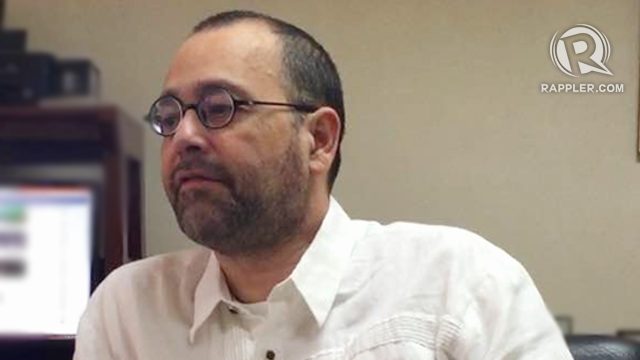SUMMARY
This is AI generated summarization, which may have errors. For context, always refer to the full article.

MANILA, Philippines – Commission on Human Rights (CHR) Chairperson Chito Gascon said that the leadership should ultimately be involved in protecting human rights for all to fully uphold human rights in the Philippines.
“If the leadership speaks the language of human rights, then it will cascade to the personnel and ultimately we will see more respect for human rights,” he told Rappler on Wednesday, June 15. “But if the leadership disregards it, then we might of course see an undermining of these efforts.”
However, the president-elect has been constantly called out by various groups – including the CHR – for his statements and actions that undermine the rights of different sectors. This includes his firm view on killing criminals. (READ: Duterte: No ‘bloodless cleansing’ vs crime)
This has led to a number of his supporters calling for the abolition of CHR because it protects criminals.
But according to Gascon, contrary to this common misconception, the CHR upholds the “nature of human rights” which includes everyone.
“Because we are human, we are imbued with certain entitlements which we call rights and these should be protected in a free and democratic society,” he explained. “And when human rights are undermined, we undermine freedom and democracy as well.”
‘Approach as they unfold’
Although there is a floating narrative of the need for “less rights and strong man rule” or authoritarianism, Gascon said that it is unacceptable to correct injustice by “perpetuating more injustice.”
“We understand why people are asking for justice,” he said. “What has to happen is to address the problem of injustice by delivering more justice, by ensuring the rule of law, by protecting human rights.”
The challenge now lies in raising awareness about the importance of upholding the law and protecting human rights at the same time, especially under the incoming administration.
“We view this as a challenge in the sense that we need to continue to inform the public and the government, law enforcement agencies, as well as prosecutors about the importance of human rights,” Gascon said. “Hopefully, in the course of this conversation, we will come to better understanding as a community.”
With regard to the new administration, the CHR will continue to fulfill its mandate of protecting the Bill of Rights enshrined in the 1987 Constitution by being a watchdog that will constantly remind the government of its responsibilities to these rights.
“We are concerned about statements made that may undermine civil and political rights,” Gascon said. Rather than be “speculative”, they will, however, “approach things as they unfold”
“We will deal with facts and events as they materialize and speak to that,” he added.
The reimposition of the death penalty, for example, will be a complete violation of the 1987 Constitution and international treaties to which the Philippines is a signatory, according to Gascon. (READ: Duterte vows to reintroduce death penalty)
The country was the first Asian country to abolish the death penalty under the 1987 Constitution, only for it to be reimposed in 1993 during the administration of Fidel V. Ramos by virtue of Republic Act 7659.
It was, however, abolished again under the Arroyo administration through Republic Act 9346 in 2006. The Philippines signed the Second Optional Protocol to the ICCPR not long after.
Reimposing the death penalty, Gascon said, will be a direct violation of the treaty we voluntarily signed, and this may result in consequences.
CHR, however, is anticipating a “rigorous debate” since it will go through Congress.
“Actually right now the debates are beginning but thankfully it will go through Congress,” Gascon said. “It will be a full hearing and we anticipate that there will be a rigorous debate and ultimately we will come to a consensus about what’s best for the country.”
Involving the leadership
Despite the pronouncement made by the president-elect accusing the commission of “nitpicking” after he was found to have violated the Magna Carta of Women following his statement regarding an Australian woman who was raped and murdered in 1989, the CHR is still looking forward to working with the incoming administration on how to better uphold human rights in the country.
However, as an independent constitutional body, the commission is ready to stand by its mandate.
“If we see human rights being protected and defended, we will cheer,” Gascon emphasized. “If we see human rights being violated, we will call this out.”
“And we will hope that all government officials whether at the national, local level will understand that this is the mandate that we’ve been given to perform,” he added. – Rappler.com
Add a comment
How does this make you feel?
There are no comments yet. Add your comment to start the conversation.